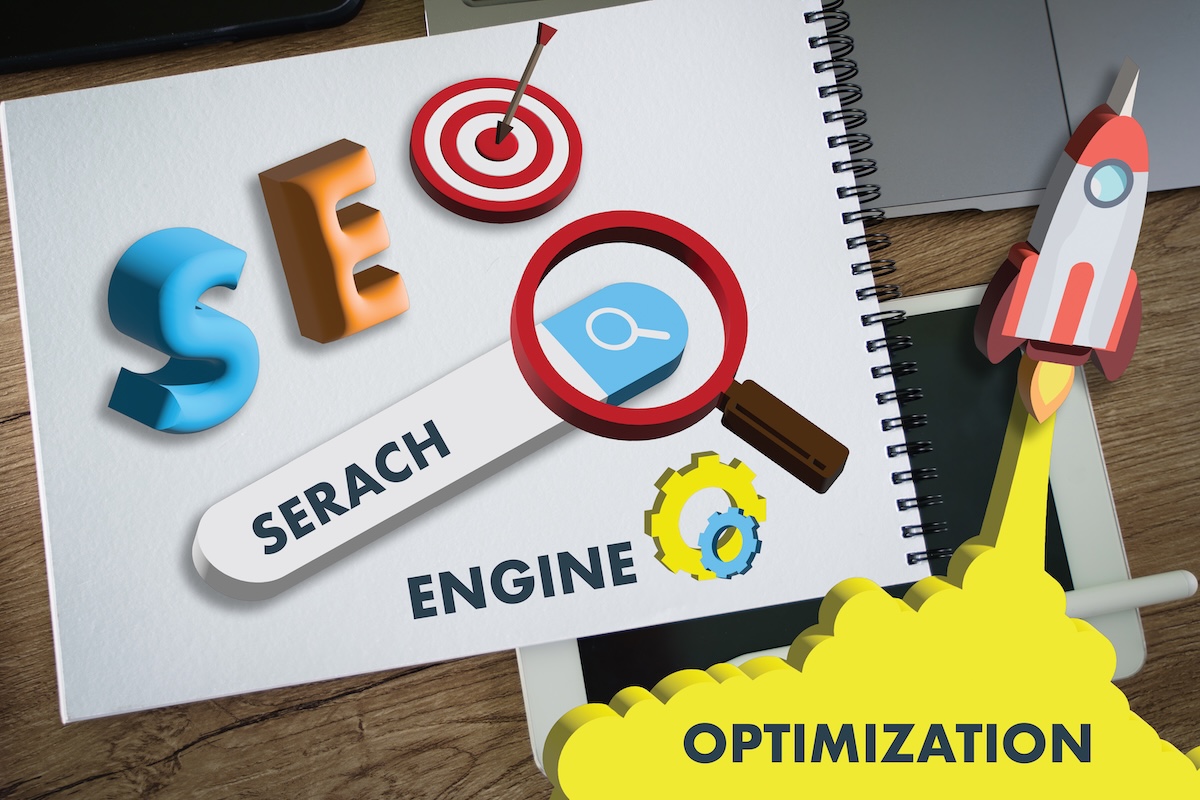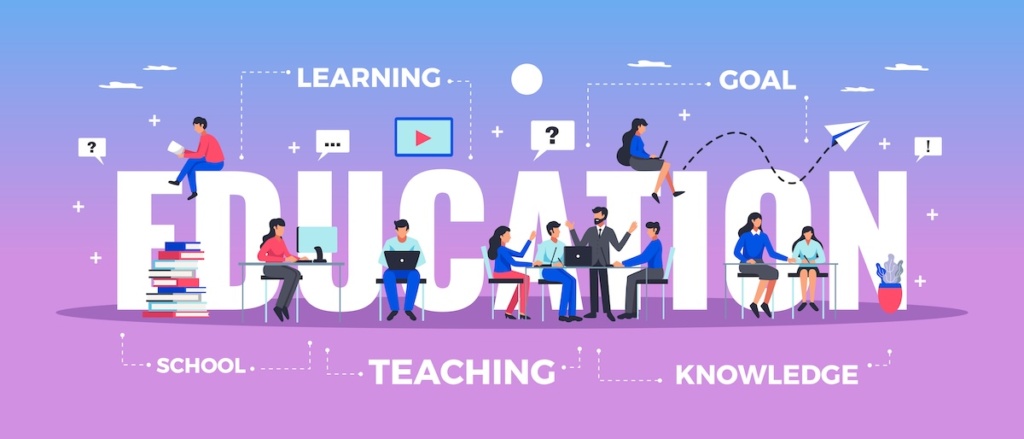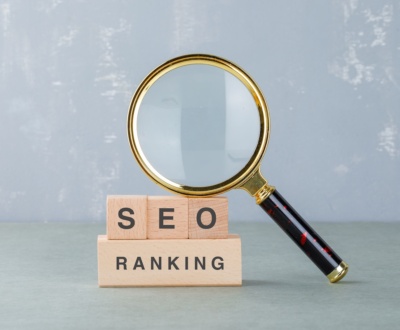The Ultimate Guide to SEO Marketing for the Education Sector
- October 19, 2025
- Uncategorized

In today's digital age, SEO marketing is vital for educational institutions. It helps schools and universities enhance their online presence. This is crucial for attracting prospective students.
The education sector is highly competitive. Institutions need effective strategies to stand out. SEO marketing offers a powerful solution.
Higher education marketing focuses on reaching students searching for colleges online. SEO for schools targets parents and students exploring K-12 options. Both require tailored approaches.
Keyword research is the foundation of successful SEO. It identifies terms potential students use. This guides content creation and optimization.
On-page SEO techniques improve search engine rankings. These include optimizing meta tags, headers, and content. Off-page strategies, like building backlinks, boost authority.
Local SEO is essential for attracting students from specific areas. It ensures institutions appear in local search results. This is key for community engagement.
SEO marketing for education is a long-term commitment. Continuous optimization is necessary for sustainable results. Institutions must adapt to changing trends and technologies.
Why SEO Marketing Matters for Educational Institutions
SEO marketing plays a crucial role in the digital strategy of educational institutions. It increases online visibility, helping schools and universities reach a wider audience.
The digital landscape has changed how students search for educational opportunities. Most students begin their journey online. This makes SEO essential for capturing their attention.
Effective SEO for schools and universities involves several key components:
- Enhancing search engine rankings to increase online visibility
- Targeting keywords that potential students and parents use
- Building authority through high-quality backlinks
Higher education marketing relies heavily on the digital presence of an institution. Prospective students evaluate colleges based on online information. Strong SEO can influence their decision-making process.
Additionally, SEO marketing provides cost-effective solutions. It allows institutions to compete with larger, more established entities. By adopting strong SEO practices, educational institutions can ensure they remain competitive and relevant in this evolving landscape.
Understanding the Student Search Journey
Understanding the student search journey is pivotal in tailoring SEO strategies effectively. Students today have more information at their fingertips than ever before. They navigate a complex path before deciding on an educational institution.
Typically, the journey begins with general research about potential programs. Students often compare different institutions based on available data. They seek out details about courses, campus life, and faculty.
The next phase involves narrowing down choices. Students dive deeper into specific details such as tuition fees, scholarship opportunities, and application processes. They often use search engines to discover this information. A strong SEO strategy ensures these details are easy to find.
Finally, the decision-making phase kicks in. At this point, testimonials, reviews, and rankings play a significant role. Educational institutions should focus on the following to capture student interest:
- Providing comprehensive, accessible content
- Highlighting unique program features
- Engaging through multiple digital touchpoints
By understanding these phases, institutions can better align their SEO tactics to match student expectations.

Keyword Research for Higher Education Marketing
Keyword research is the foundation of successful SEO strategies. It identifies the search terms used by prospective students. These terms can vary widely depending on the student's goals and needs.
For higher education, focus on long-tail keywords. These are specific phrases that more accurately reflect search intent. They help capture niche audiences. For example, instead of generic terms like "best colleges," use "best engineering colleges in California."
Implement tools like Google Keyword Planner to unearth valuable keywords. Prioritize ones with high search volume and low competition. Understanding these insights guides content creation and optimization.
Incorporate a diverse mix of keywords. Consider categories such as:
- Academic programs and degrees
- Campus facilities and lifestyle
- Financial aid and scholarships
By aligning your content with relevant keywords, you will improve visibility and attract more targeted website traffic. This approach ensures students find accurate and helpful information easily.
On-Page SEO Strategies for Schools and Universities
On-page SEO focuses on elements directly on your website that can be optimized. This includes meta tags, headers, and content. It's crucial for improving search engine rankings.
Start by crafting compelling meta titles and descriptions. They should accurately convey the page's content and include primary keywords. This encourages click-through rates from search results.
Use headings strategically. Heading tags, like H1 and H2, structure your content. They should reflect main points and target keywords, making it easier for search engines and users.
Content quality is vital. Create informative and engaging content. It should address prospective students' questions and showcase the unique aspects of your institution.
Incorporate keyword variations naturally throughout. This keeps the content reader-friendly while enhancing relevance for search queries.
Additionally, consider implementing:
- Internal linking to guide users to valuable content
- Optimizing images with alt tags for search visibility
- Including clear calls to action to increase engagement
By refining these on-page elements, schools and universities can significantly boost their search visibility and user engagement.
Off-Page SEO: Building Authority and Backlinks
Off-page SEO involves activities outside your website to improve your search engine rankings. Building authority and acquiring quality backlinks are key components. These contribute to your site's credibility and visibility.
Backlinks from reputable educational websites or influencers can enhance your domain authority. This, in turn, can help signal search engines that your content is trustworthy and relevant.
Begin by collaborating with other educational institutions and influencers. These partnerships can yield valuable backlinks and boost your online visibility. Also, focus on engaging in educational forums and discussions. By providing insightful contributions, you can earn natural backlinks.
Consider the following strategies to build authority:
- Guest posting on credible education blogs
- Creating shareable content that garners organic links
- Participating in online educational webinars
By focusing on these off-page strategies, educational institutions can improve their reputation and strengthen their online presence. This approach attracts not only search engines but also prospective students.
Local SEO: Reaching Students in Your Area
Local SEO focuses on optimizing your online presence to attract students within a specific geographic area. This is particularly important for schools and universities seeking to engage local communities.
One effective strategy is to optimize your Google My Business listing. Ensure all information is accurate and up-to-date to improve your institution’s visibility in local searches.
Consider the following actions to enhance local SEO efforts:
- Incorporate local keywords in your content
- Encourage reviews from local students and parents
- Participate in local community events and online local forums
Engage with your local audience by tailoring your content to address their specific needs and interests. This will not only increase your visibility but also foster a sense of community connection and trust.
Content Marketing for Education: Blogs, Resources, and More
Content marketing is vital for educational institutions aiming to attract and engage prospective students. It allows you to showcase your expertise and create a valuable resource hub for students and parents.
Educational blogs are a powerful tool for sharing insights, updates, and success stories. They provide a platform to discuss topics relevant to students' interests and concerns, positioning your institution as a thought leader.
To enhance your content marketing strategy, consider the following:
- Develop comprehensive resource guides on trending educational topics
- Share expert interviews and faculty profiles
- Create downloadable materials like e-books and whitepapers
Incorporating diverse content types keeps your audience engaged and informed. This variety can expand your reach and encourage return visits to your site.
Ultimately, content marketing builds trust and strengthens your institution's reputation, making it more attractive to potential students seeking quality education.

Mobile Optimization and User Experience
Mobile optimization is essential as more students use smartphones to search for educational institutions. Ensuring your website is mobile-friendly can significantly impact user satisfaction and SEO performance.
A seamless mobile experience includes fast loading times and intuitive navigation. Users should easily find information without excessive scrolling or searching. Consider these elements to improve mobile UX:
- Use responsive design to adapt to different screen sizes
- Optimize images and videos for quick load times
- Simplify forms to minimize user effort
Prioritizing user experience ensures potential students can access important information easily. A well-optimized mobile site can improve your search ranking and ultimately lead to higher engagement and conversion rates.
Leveraging Video and Interactive Content
Incorporating video content can greatly enhance your SEO marketing efforts in the education sector. Videos engage potential students more effectively than text alone, offering dynamic insights into your institution.
Interactive content like quizzes and surveys can also boost user engagement. These tools help potential students learn more about your programs in an engaging way. Consider the following strategies to implement:
- Use virtual campus tours to showcase facilities
- Include student testimonials to build trust
- Create informative webinars on educational topics
Engaging content not only attracts prospective students but also encourages them to spend more time on your site. This, in turn, positively impacts your search rankings and strengthens your institution's online presence.
Social Media Integration and Its Impact on SEO
Social media plays a crucial role in enhancing SEO efforts for educational institutions. Platforms like Facebook, Twitter, and Instagram can drive significant traffic to your website. Increased engagement on these platforms can indirectly impact your search rankings.
By sharing content on social media, you also create opportunities for backlinks. This boosts your site's authority. To maximize social media impact, consider:
- Posting consistently with targeted keywords
- Engaging with comments and messages
- Sharing diverse content like blogs and videos
These strategies not only expand your reach but also contribute to a well-rounded SEO marketing plan.
Technical SEO and Website Health
Technical SEO is vital for ensuring your educational website functions at its best. A healthy website can improve search engine rankings significantly. Key areas to focus on include site speed, mobile-friendliness, and secure connections.
A fast-loading site retains visitors and enhances user experience. Similarly, a mobile-friendly design is crucial as more users browse on their phones. Ensuring your site uses HTTPS signals trust to both users and search engines.
To maintain website health, consider the following:
- Regular audits to spot and fix errors
- Using Google Search Console for performance insights
- Ensuring all links are functional and updated
These technical optimizations are foundational for robust SEO marketing efforts in the education sector. They build a strong infrastructure that supports other SEO strategies.
Analytics, Tracking, and Continuous Improvement
Understanding the effectiveness of your SEO efforts is crucial. Analytics tools provide insights into user behavior and website performance. These tools help identify areas needing improvement.
Regularly monitoring your site's analytics is key to long-term success. Using data-driven insights ensures you make informed decisions. Adjusting strategies based on real data leads to effective results.
Consider implementing these practices:
- Use Google Analytics for comprehensive tracking
- Set up conversion goals and event tracking
- Monitor bounce rates and user engagement metrics
Staying updated with analytics allows you to refine your SEO tactics. This proactive approach is vital for maintaining and improving your educational institution's online presence.
Adapting to Trends: AI, Voice Search, and the Future of SEO in Education
The landscape of SEO is constantly changing. Emerging technologies like AI and voice search are reshaping how users find educational content. Embracing these trends can give institutions a competitive edge.
AI tools can enhance personalized content recommendations, improving student engagement. Understanding voice search is also crucial, as more users rely on smart devices. Ensure that your content is optimized for natural language queries.
Consider focusing on these strategies:
- Implement AI for tailored user experiences
- Optimize content for voice search with conversational keywords
- Stay informed on industry advancements
Staying ahead of these trends is essential for educational institutions. Being adaptable will safeguard your online presence amidst the rapid evolution of digital marketing.
Common SEO Mistakes in Education Marketing (and How to Avoid Them)
Educational institutions often make similar SEO errors, which can hinder their online success. Recognizing these mistakes is the first step to improving your strategy.
Here are common pitfalls and how to dodge them:
- Ignoring mobile optimization
- Overlooking local SEO opportunities
- Underestimating the importance of content updates
To avoid these issues, conduct regular SEO audits and focus on continuous improvement. By addressing these common mistakes, educational institutions can enhance their online presence and attract more students effectively.
Building a Sustainable SEO Strategy for Long-Term Success
Developing a sustainable SEO strategy is essential for educational institutions aiming for ongoing success. It requires consistent efforts and adaptability to changes.
Key components of a lasting SEO strategy include:
- Continual content updates
- Long-term engagement with students and stakeholders
- Regular review and adaptation to SEO trends
By embedding these elements into your SEO plans, your institution can experience long-term growth and a robust online presence. This approach not only enhances visibility but also ensures you stay competitive in the evolving digital landscape.
Taking the Next Steps in SEO Marketing for Education
SEO marketing is not a one-time task. It's a continuous journey that evolves with the digital landscape. As educational institutions, embracing SEO can greatly enhance your visibility.
Begin by setting clear SEO goals aligned with your institution's mission. Continuous learning and adaptation are key to staying ahead. By implementing these strategies, your institution can attract more students and foster an engaged community. Embrace the potential of SEO to drive growth and enhance your educational reach.
Ronan Mullaney is a digital strategist and AI SEO consultant with over a decade of experience helping global brands improve visibility through structured data and semantic optimization. As the founder of ROI Digital Partners, he focuses on building data-driven SEO strategies that align with how AI and modern search algorithms understand content.
About this blog
We are a digital marketing company with a focus on helping our customers achieve great results across several key areas.
Request a free quote
We offer professional SEO services that help websites increase their organic search score drastically in order to compete for the highest rankings even when it comes to highly competitive keywords.
Subscribe to our newsletter!
More from our blog
See all postsRecent Posts
- How AI Algorithms Evaluate Educational Content: 10 Ranking Factors You Need to Know (2026 Edition) November 29, 2025
- AI SEO for Education: The Complete Beginner’s Roadmap for 2026 November 29, 2025
- Top 7 SEO Mistakes Education Websites Make (and How to Fix Them) November 16, 2025










